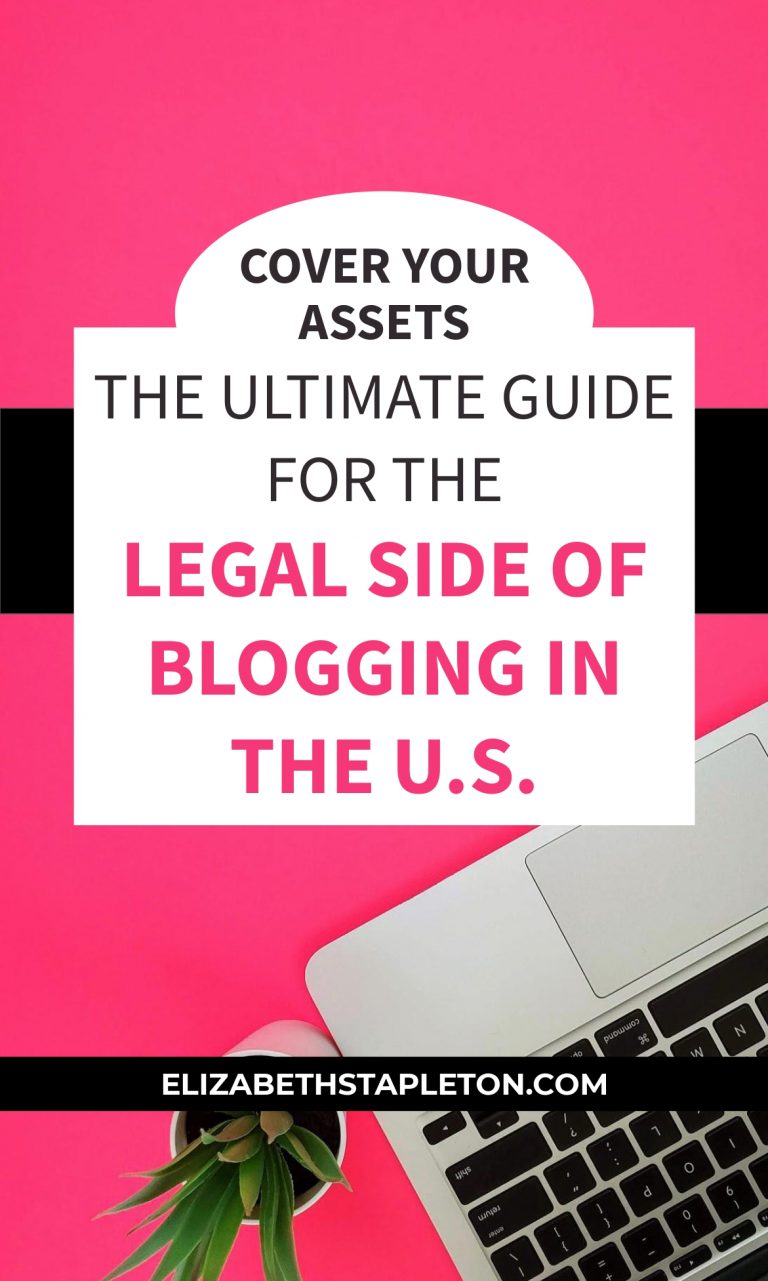Why Blogger’s Need a Privacy Policy
As a blogger, you put your heart and soul into creating captivating content, building a loyal readership, and possibly even monetizing your platform.
However, amidst all the creativity and engagement, it’s essential not to overlook the legal aspects of running a blog.
As a blogger, having a privacy policy is not just a legal requirement but also a critical step in building trust with your audience and protecting both yourself and your readers. Let’s delve deeper into why having a privacy policy is a must-have for every blogger.
What is a Privacy Policy
A privacy policy is a statement or document (typically included as a web page) that discloses how a website collects, uses, discloses, and manages a visitor’s data. This document serves as an agreement between the website operator and its users, outlining what kind of information is collected and how it will be used.
For bloggers, having a clear and comprehensive privacy policy is not just good practice to be transparent with your audience; it’s legally required.
Legal Requirements of Privacy Policies
Various laws across the globe mandate that websites must have a privacy policy if they collect personal information from their users. And more are popping up every month. In the United States, 3 states saw new Data Privacy Laws come into effect in 2023, 6 have or will have new data privacy laws come into effect in 2024, and 7 more states will have laws that take effect in 2025.
Here are some of the most well known regulations:
- General Data Protection Regulation (GDPR): Enforced in the European Union, GDPR requires any website collecting data from those located in the EU to have a detailed privacy policy, and proper consent to collect data.
- California Consumer Privacy Act (CCPA): One of the first states to draft legislation on data privacy in the US, this law applies to businesses operating in California or dealing with California residents. It demands transparency about data collection practices.
Laws and regulations that require websites to have a privacy policy
Beyond GDPR, there is also the:
- Personal Information Protection and Electronic Documents Act out of Canada
- Brazilian General Data Protection Law
- The following States also have Data Privacy Acts enacted or coming into effect soon:
- Colorado
- Connecticut
- Deleware
- Florida
- Indiana
- Iowa
- Kentucky
- Maryland
- Montana
- New Hampshire
- New Jersey
- Nebraska
- Oregon
- Texas
- Tennessee
- Utah
- Virginia
Consequences of not having a privacy policy
Failing to include a privacy policy on your blog can lead to several negative consequences:
- Legal Repercussions: Without a compliant privacy policy, you could face fines or legal actions from regulatory bodies.
- Loss of Trust: Readers may be wary of sharing personal information if they don’t know how it will be used, leading to decreased engagement.
- Monetary Penalties: Violations of GDPR or CCPA can result in substantial financial penalties.
- Suspension by Service Providers and Third Party Services: Platforms like Google AdSense or affiliate programs might suspend your account for non-compliance.
So at the end of the day it’s possible that you will both be fined and your ability to continue to earn money via affiliate programs and other means, could be revoked.
What To Included in Your Privacy Policy
A robust privacy policy should cover various aspects of data collection and usage. In general you should include the following in a way that is easy to understand, so skip the legalese:
- Types of Information Collected: Specify whether you collect names, email addresses, IP addresses, etc.
- Methods of Collection: Explain how you gather this information—whether through forms, cookies, or other technologies.
- Purpose of Data Collection: Clarify why you’re collecting this data—for instance, for analytics, newsletters, or targeted advertising, make sure to also include the basis for consent
- Data Sharing Practices: Mention if you share this data with third party services such as advertisers or service providers. For example, email marketing services, certain plugins, or an analytics services like Google Analytics.
- User Rights: Inform users about their rights regarding their personal data under applicable laws (e.g., right to access, correct, revoke, and/or delete their data).
- Contact Information: Provide contact details for users to exercise their rights or to simply reach out with questions or concerns about your privacy practices. This is typically done via an email address or contact form on your site. Note, you cannot require users to create an account in order to exercise their rights.
How bloggers collect personal information from their readers
Bloggers commonly collect personal information through various methods:
- Email Opt-in Forms: If you have an email list and are working to grow through opt-in forms, you are collecting data..
- Comment Sections: When readers leave comments on blog posts, they generally have to include a name or email address which is personal data.
- Contact Forms: When readers reach out via contact forms for inquiries or collaborations in order for you to respond they have to provide personal information.
While this is not a comprehensive list of ways blogger’s collect personal data, these three ways are by far the most common.
Use of Cookies and Tracking Technologies
Cookies and tracking technologies play a significant role in modern blogging:
- Cookies: Small files stored on user devices that help track user activity on your site, and can be categorized as being first party cookies (originated on your site) or third party cookies (generated by a separate domain)
- Web Pixels: as cookies are becoming less reliable, pixels which are embedded in web content and because this is a site that helps you understand the legal side of things, I’ll defer to this great article that better explains the difference between cookies, pixels, and tags.
These technologies help bloggers understand reader preferences better but must be disclosed clearly in the privacy policy.
Bottom Line
In today’s digital landscape, having a privacy policy isn’t optional—it’s essential for compliance and trust-building with your audience. Failing to implement one can lead to severe consequences ranging from legal troubles to loss of income generating activities.
By understanding what needs to be included in your privacy policy and how you collect personal information from your audience, you’ll be well-equipped to create a transparent environment where readers feel safe engaging with your content.
Stay compliant, build trust, and protect yourself legally by prioritizing an effective privacy policy for your blog today!






